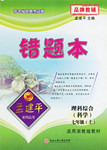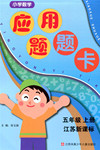题目内容
While high school does not generally encourage students to explore new aspects of life, college sets the stage for that exploration. I myself went through this ______ process and found something that has changed my ______ at college for the better: I discovered ASL—American Sign Language (美式英语).
I never felt an urge to ______ any sign language before. My entire family is hearing, and so are all my friends. The ______ languages were enough in all my interactions (交往). Little did I know that I would discover my ______ for ASL.
The ______ began during my first week at college. I watched as the ASL Club ______ their translation of a song. Both the hand movements and the very ______ of communicating without speaking ______ me. What I saw was completely unlike anything I had experienced in the ______. This newness just left me ______ more.
After that, feeling the need to ______ further. I decided to drop in on one of ASL club’s meetings. I only learned how to ______ the alphabet that day. Yet instead of being discouraged by my ______ progress, I was excited. I then made it a point to ______ those meetings and learn all I could.
The following term, I ______ an ASL class. The professor was deaf and any talking was ______. I soon realized that the silence was not unpleasant. ______, if there had been any talking, it would have ______ us to learn less. Now, I appreciate the silence and the ______ way of communication it opens.
1.A. searching B. planning C. natural D. formal
2.A. progress B. experience C. major D. opinion
3.A. choose B. read C. learn D. create
4.A. official B. foreign C. body D. spoken
5.A. love B. concern C. goal D. request
6.A. meeting B. trip C. story D. task
7.A. recorded B. performed C. recited D. discussed
8.A. idea B. amount C. dream D. reason
9.A. disturbed B. supported C. embarrassed D. attracted
10.A. end B. past C. course D. distance
11.A. showing B. acting C. saying D. wanting
12.A. exercise B. explore C. express D. explain
13.A. print B. write C. sign D. count
14.A. slow B. steady C. normal D. obvious
15.A. chair B. sponsor C. attend D. organize
16.A. missed B. passed C. gave up D. registered for
17.A. prohibited B. welcomed C. ignored D. repeated
18.A. Lastly B. Thus C. Instead D. However
19.A. required B. caused C. allowed D. expected
20.A. easy B. popular C. quick D. new
 孟建平错题本系列答案
孟建平错题本系列答案 超能学典应用题题卡系列答案
超能学典应用题题卡系列答案
